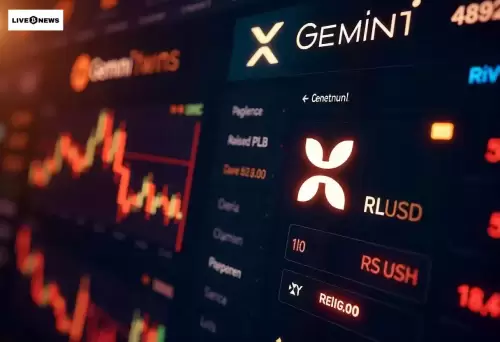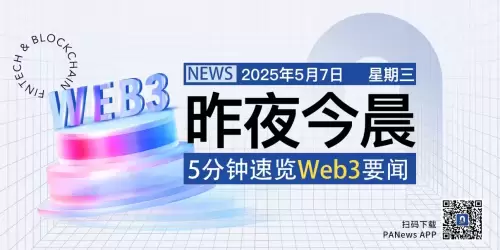 |
|
 |
|
 |
|
 |
|
 |
|
 |
|
 |
|
 |
|
 |
|
 |
|
 |
|
 |
|
 |
|
 |
|
 |
|
比特幣核心不是由投票支持的民主。它應該基於粗略的共識。任何人都可以看到放鬆OP_Return限制沒有共識。

A heated dispute has emerged within the Bitcoin developer and user community over a proposal to remove or loosen limits on OP_RETURN, a feature that allows embedding arbitrary data in Bitcoin transactions.
在比特幣開發人員和用戶社區中出現了激烈的爭議,以刪除或放鬆OP_Return的限制,該提案允許將任意數據嵌入比特幣交易中。
Bitcoin Core is not a democracy governed by votes. It’s supposed to be based on rough consensus. Anyone can see that there is no consensus on relaxing OP_RETURN limits. Pushing ahead on this change is going down a slippery slope.
比特幣核心不是由投票支持的民主。它應該基於粗略的共識。任何人都可以看到放鬆OP_Return限制沒有共識。推進這一變化是沿著濕滑的坡度降低的。
This debate exposes longstanding tensions between those focused on Bitcoin as sound money and those seeking to standardize mempools and "clean up the code."
這場辯論暴露了專注於比特幣作為合理金錢的人與尋求標準化孟買並“清理代碼”的人之間的長期緊張關係。
The disagreement centers on whether lifting OP_RETURN limits would increase spam-like data in the blockchain, threatening Bitcoin’s core design as a decentralized monetary network.
分歧是指重新申請限制是否會增加區塊鏈中類似垃圾郵件的數據,從而威脅比特幣作為分散的貨幣網絡的核心設計。
Bitcoiners, such as Samson Mow, Matthew Krater, and Adam Back state that normalizing non-monetary data use erodes Bitcoin’s purpose as a store of value and sound money.
比特幣,例如Samson Mow,Matthew Krater和Adam的Back Node,可以將非貨幣數據使用的標準化侵蝕比特幣的目的作為價值和合理的錢。
Krater draws on everyday analogies — like email spam and bloated apps — to stress that just because someone pays a fee does not make all transactions legitimate.
Krater借鑒了每天的類比(例如電子郵件垃圾郵件和腫的應用程序),以強調僅僅因為有人支付費用並不能使所有交易都沒有合法。
“There are spam filters for a reason, and Bitcoin should resist becoming a dumping ground for inscriptions, NFTs, or arbitrary files,” he adds.
他補充說:“有一個垃圾郵件過濾器是有原因的,比特幣應該抗拒成為銘文,NFT或任意文件的傾銷場所。”
Echoing this, many warn that adding extra data harms node operators by increasing storage burdens and network bloat, effectively turning Bitcoin into a “data storage system” rather than a peer-to-peer financial protocol.
回應這一點,許多人警告說,添加額外的數據通過增加存儲負擔和網絡膨脹來損害節點運算符,從而有效地將比特幣轉變為“數據存儲系統”,而不是點對點財務協議。
“Why are we incentivizing spam?” asks Mow.
“我們為什麼激勵垃圾郵件?”問割。
He notes that past measures, like Satoshi’s original spam filters and the 2014 OP_RETURN cap, were explicitly meant to prevent Bitcoin’s blockchain from being overloaded with non-financial data.
他指出,過去的措施,例如Satoshi的原始垃圾郵件過濾器和2014年OP_Return Cap,明確旨在防止比特幣的區塊鏈被非財務數據超載。
Removing those filters, he argues, invites abuse, potentially undermining Bitcoin’s long-term security and decentralization by making it more costly and cumbersome to run a node.
他認為,刪除這些過濾器誘使虐待,可能通過使節點更加昂貴和繁瑣來破壞比特幣的長期安全和權力下放。
On the other side, Jameson Lopp and some Core contributors maintain that technical discussions belong inside Bitcoin’s GitHub repository, not on social media, and that protocol changes should rely on rational, well-documented arguments.
另一方面,詹姆森·洛普(Jameson LOPP)和一些核心貢獻者認為,技術討論屬於比特幣的GitHub存儲庫中,而不是在社交媒體上,並且協議更改應依賴於理性,有據可查的論點。
Lopp notes that while rough consensus guides Bitcoin’s evolution, non-contributors’ opinions on platforms like X do not affect formal development decisions.
LOPP指出,儘管粗略的共識指導了比特幣的進化,但非對立者對X等平台的看法並不影響正式的開發決策。
However, Bob Burnett counters that dismissing outside perspectives creates a gatekeeping dynamic that alienates newer or non-technical participants.
但是,鮑勃·伯內特(Bob Burnett)反駁說,駁斥外部觀點會產生守門動態,使新的或非技術參與者疏遠。
That is a bad, bad look. If guys like Samson and I (or you) can't even weigh-in with an opinion to be considered, then the system is seriously, seriously broken. I disagree with you on this issue here but respect you enough based on your history to say your opinion should count.
那是一個不好的外觀。如果像Samson和我(或者您)這樣的人甚至無法考慮要考慮的意見,那麼系統將被嚴重打破。我在這裡在這個問題上不同意您,但根據您的歷史足夠尊重您,以至於您的意見應該很重要。
Some defenders of removing the OP_RETURN limits argue that since arbitrary data is already entering the blockchain through methods like Taproot, offering a less harmful, structured avenue (such as OP_RETURN) could mitigate overall damage.
刪除OP_Return限制的一些捍衛者認為,由於任意數據已經通過Taproot之類的方法進入區塊鏈,因此提供了一種危害不太有害的結構化途徑(例如OP_Return),可以減輕整體損害。
But opponents challenge this logic, saying it effectively normalizes spam instead of deterring it.
但是對手挑戰了這種邏輯,稱其有效地歸一化垃圾郵件而不是阻止垃圾郵件。
They highlight that while filters may not eliminate every misuse, they significantly raise the cost and effort of spam attacks—justifying their continued use.
他們強調說,儘管過濾器可能不會消除所有濫用,但它們會大大提高垃圾郵件攻擊的成本和精力,從而使他們繼續使用。
Underlying the technical arguments is a deeper philosophical rift over Bitcoin’s identity.
技術論點的基礎是對比特幣身份的更深入的哲學裂痕。
Those against the proposed change emphasize Bitcoin’s cultural foundation: it is a monetary system optimized for censorship resistance, sovereignty, and decentralization—not a general-purpose database.
反對擬議的變更的人強調了比特幣的文化基礎:這是一種針對抵抗力,主權和權力下放的貨幣體系,而不是通用數據庫。
They point out that relaxing controls on non-financial uses opens the door to “mission creep,” where Bitcoin’s defining properties are gradually diluted, mirroring the trajectory of more feature-heavy, centralized blockchains like Ethereum.
他們指出,非財務用途的放鬆控件為“任務蠕變”打開了大門,在那裡,比特幣的定義特性逐漸被稀釋,反映了更豐富功能更豐富,集中式區塊鏈(如以太坊)的軌跡。
Developers backing the change, however, often frame their stance as promoting user freedom and adaptability, asserting that Bitcoin’s protocol should not rigidly restrict potential use cases unless there is clear and present harm.
但是,支持這一變化的開發人員經常將自己的立場構成促進用戶自由和適應性的立場,並斷言比特幣的協議不應嚴格限制潛在用例,除非有明確的危害。
However, past upgrades like SegWit and Taproot have already led to unexpected network congestion, as noted by Jesse Meyers.
但是,正如傑西·邁耶斯(Jesse Meyers)指出的那樣,過去的升級和Taproot等過去的升級已經導致了意外的網絡擁堵。
Didn’t segwit / taproot unexpectedly enable NFTs on Bitcoin? And Core didn’t anticipate that outcome…and now we’re supposed to trust Core’s opinion that there’s no downsides to removing this other data constraint?Completely baffled by @lopp and other staunch advocates for this change. https://t.co/53YjP2gJ8I
Segwit / Taproot是否意外地啟用了比特幣上的NFT? Core沒想到這一結果……現在我們應該相信Core的觀點,即沒有弊端可以消除其他數據約束? @LOPP和其他堅定的倡導者對此更改感到困惑。 https://t.co/53yjp2gj8i
The debate has also sparked broader concerns about governance. Some, like Mow, warn that if Bitcoin Core developers push changes without broad support, the community has options.
辯論還引發了人們對治理的廣泛關注。像MOW這樣的一些人警告說,如果比特幣核心開發人員在沒有廣泛支持的情況下推動變化,那麼社區就有選擇。
They can withhold funding from developer groups, switch to alternative software like Bitcoin Knots, or organize user-activated soft forks (UASF) to reassert control.
他們可以從開發人員組中扣留資金,切換到替代軟件(例如比特幣結),或者組織用戶激活的軟叉(UASF)重新控制控制。
The rhetoric that you must be a Core dev for your opinion to matter is not conducive for good faith discussions to reach consensus.However, there are many things that can be done to mitigate this. If Bitcoin Core devs are going rogue, as @mattkratter says, there is actually a lot of power
您必須成為重要意見的核心開發事件的言論不利於真誠討論達成共識。但是,可以做很多事情來減輕這種情況。如@mattkratter所說,如果比特幣核心開發人員流氓,實際上有很多力量
免責聲明:info@kdj.com
所提供的資訊並非交易建議。 kDJ.com對任何基於本文提供的資訊進行的投資不承擔任何責任。加密貨幣波動性較大,建議您充分研究後謹慎投資!
如果您認為本網站使用的內容侵犯了您的版權,請立即聯絡我們(info@kdj.com),我們將及時刪除。
-

-

-

- 特朗普即將推出“重大公告”。這就是可能的。
- 2025-05-07 13:00:16
- 美國總統唐納德·特朗普(Donald Trump)最近表示,他即將推出“大公告”。他稱其為“震驚”和“對國家的積極發展”,
-

- 一個涉嫌與傑菲·尤(Jeffy Yu
- 2025-05-07 13:00:16
- Binance將支持以太坊網絡升級和硬叉,暫停存款和撤回服務的多個EVM鏈
-

-

- 美國民主黨立法者發動對唐納德·特朗普總統的加密貨幣的多角度攻擊
- 2025-05-07 12:55:15
- 《現代艾爾將和瀆職執法法》或《模因法》旨在防止聯邦官員利用自己的立場從成員中獲利
-

- Litecoin(LTC/USD)在星期二領導加密貨幣市場促銷市場促進市場獎勵清單
- 2025-05-07 12:50:13
- 在過去的24小時內,工作證明硬幣飆升了11%以上,自3月28日以來未見水平。
-

-

























































